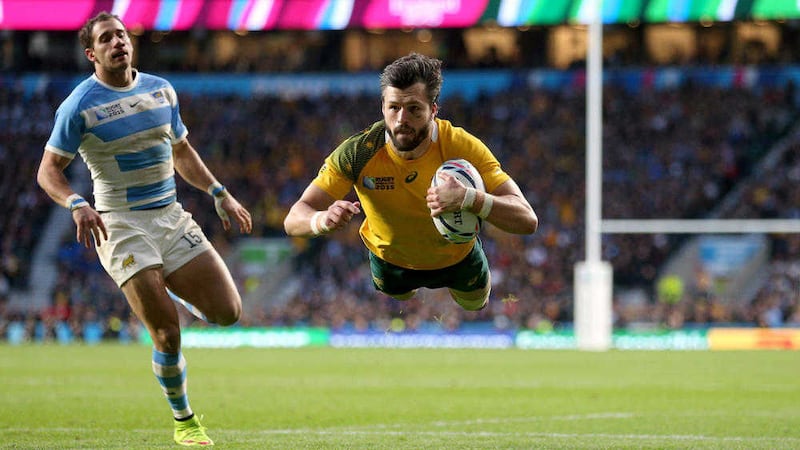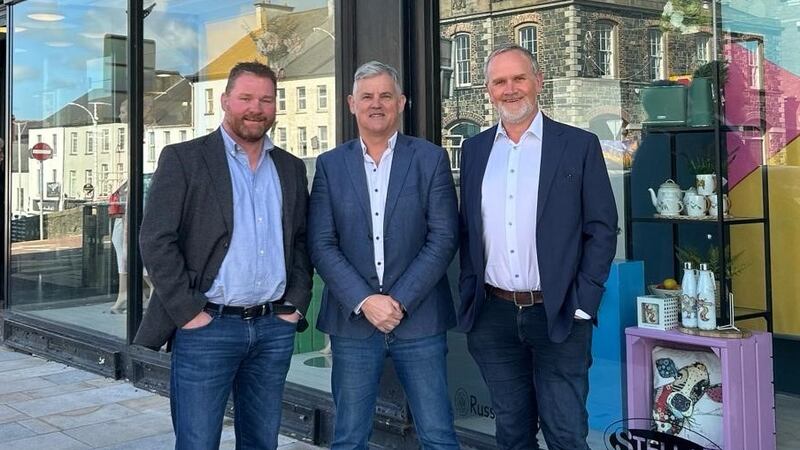I HAVE a confession to make. I'm an English Rugby fan. It’s not my fault – while I’ve lived in Northern Ireland for 10 years, I grew up in the north of England. The Rugby World Cup has certainly given us lots of thrills and spills over the past weeks and I watched with dismay as the host country crashed out of the group stages.
My misery then compounded when my son arrived bedecked in an Ireland top, green trousers and Ireland rugby flags. Despite England’s early exit, the tournament has been lauded as a great success which has had a major impact on businesses and marketing campaigns globally.
Sports fans like stats, so let’s start with some: the inaugural RWC was hosted by Australia and New Zealand in 1987 and was attended by 600,000 fans with an estimated 200 million television audience. This year 2.3 million tickets were sold and an estimated 4 billion of us will have followed the action on our television sets.
According to EYs Economic Impact Report “The Rugby World Cup is expected to deliver up to £2.2 billion in output to the host economy, translating into an additional £982 million of value added to GDP and 466,000 international visitors”.
Impressive stats indeed and an opportunity for marketers to associate their organisations with not only a large sporting event but with a brand which, overall, maintains its integrity where others fall into governance and competition issues which may tarnish association.
The Rugby Football Union sees the World Cup as an opportunity to engage with existing supporters and hook in new fans and they have done as much as possible to endear the sport to a wider public by providing an opportunity to encourage increased participation in the sport. There was an official RWC app, social media sites, special website developed for the occasion with content which would engage with a wide audience, even Shaun The Sheep was drafted in to the squad to help engage a younger audience online.
Clever, interactive engagement was even evident on the tickets for matches as when scanned with an app the ticket holder was able to access a library of world cup memories, match previews and even see what their view would be from their seat – virtually.
The RFU’s official sponsors for the tournament such as Heineken joined the interactive party and created an online rugby forum, giving those who engaged the opportunity to toss the coin at the start of a game.
Samsung created a series of adverts which featured members of the England team and Jack Whitehall. Elsewhere Guinness produced a particularly powerful online advert and short film called ‘Never Alone’ featuring ex Welsh International Gareth Thomas.
Technology was used so fans could have two way engagement by taking a selfie with the official ball of the tournament and share on social media. For the hapless England supporter new technology enabled England team sponsor O2 to offer fans the opportunity to step into a virtual reality with fans in the middle of training camps and listening to a team talk by Chris Robshaw.
DHL created online content where Welsh legend Adam Jones challenged fans to “scrum with anything” and send in the picture via social media creating interesting interactive content and an opportunity to engage with a brand which would not usually be seen as particularly interactive or attractive.
So, what does this teach us about how organisations have promoted their products and services to rugby fans? No matter what your brand, think how your campaign can be interactive and engaging and use high quality original content. Brands want to create a deeper relationship with consumers, not just flash their brand for all to see.
:: Nick Read is chair of the Chartered Institute of Marketing (CIM) Ireland board. Visit www.cim. co.uk for more information or follow @CIMInfo_Ireland.







